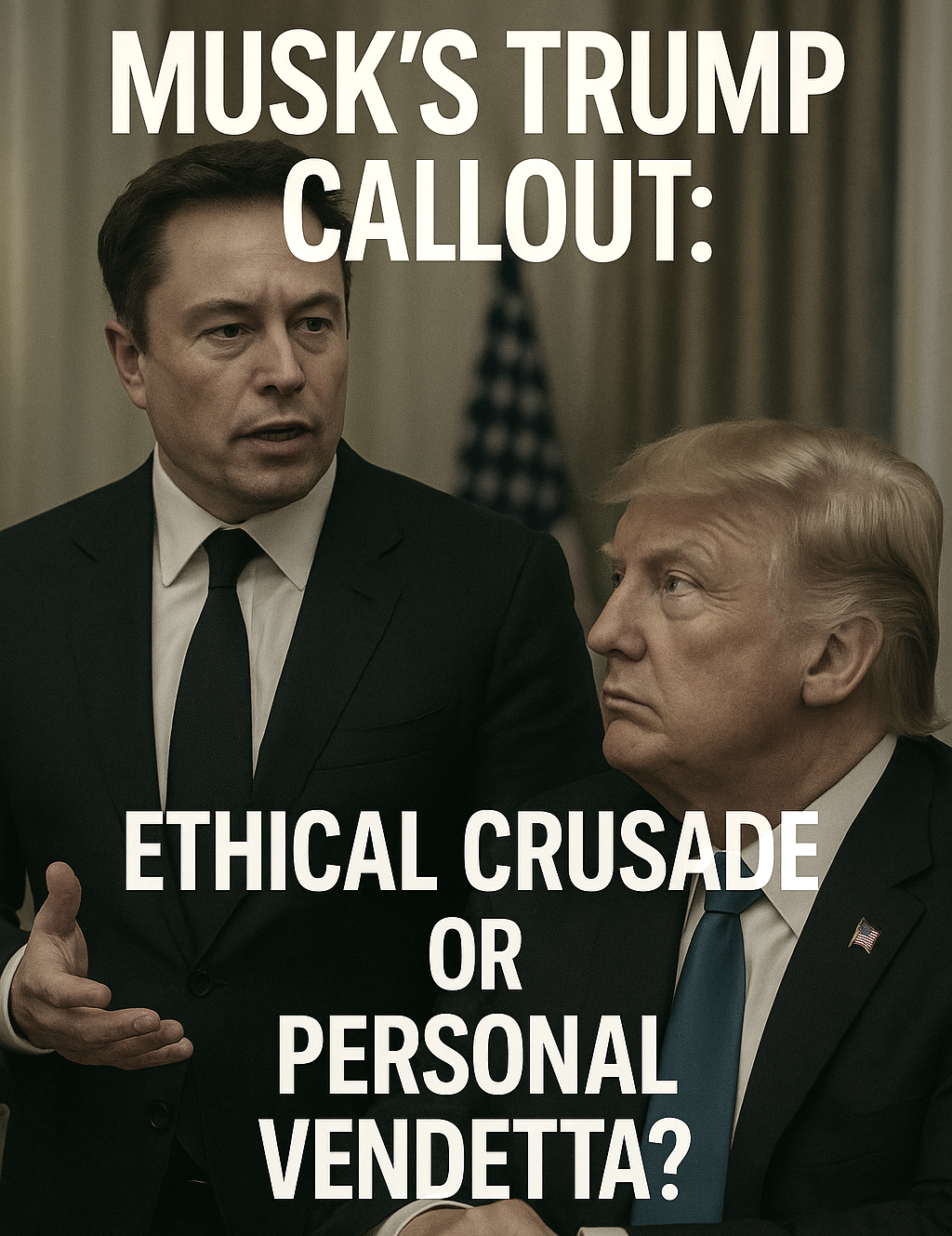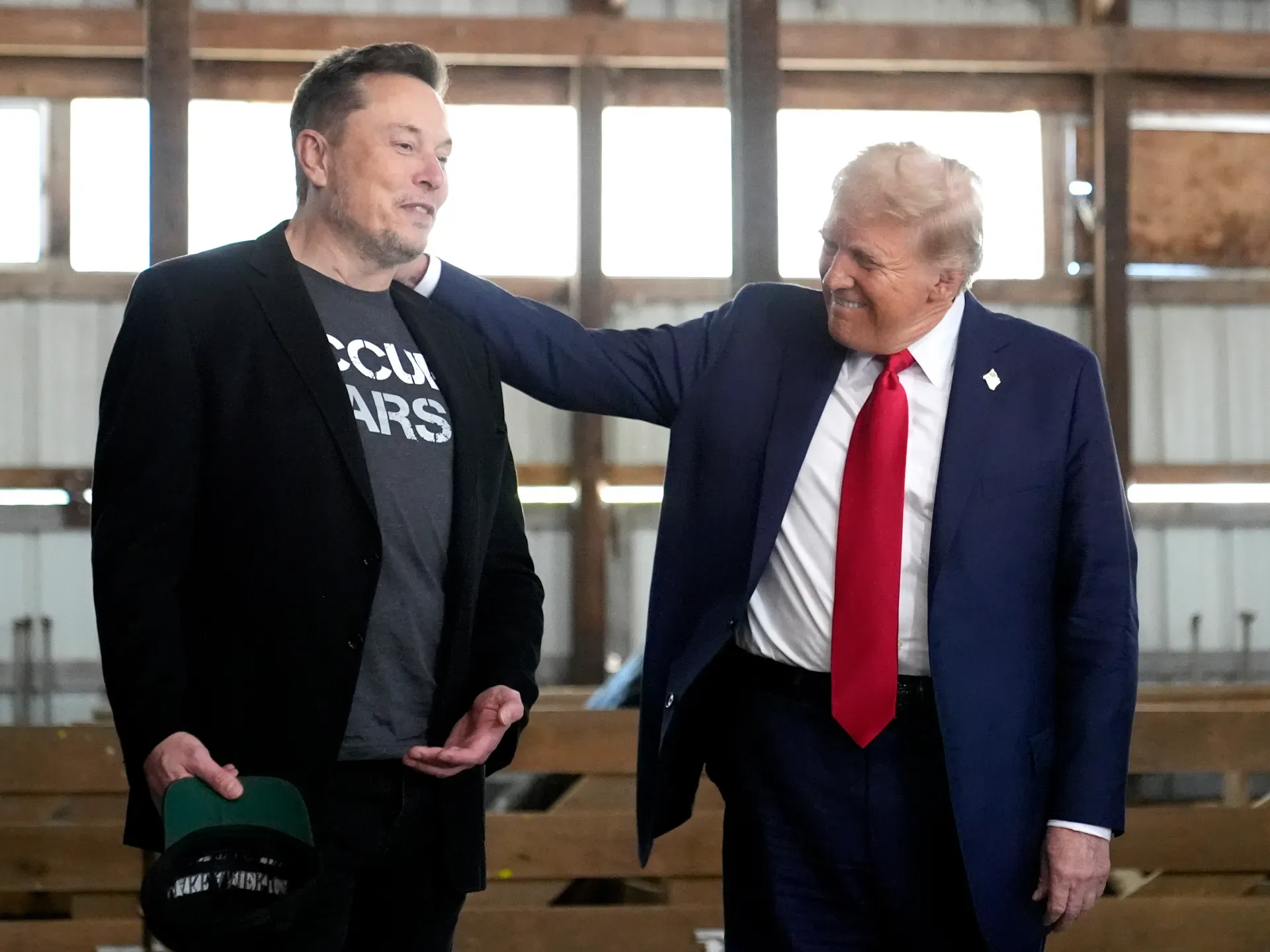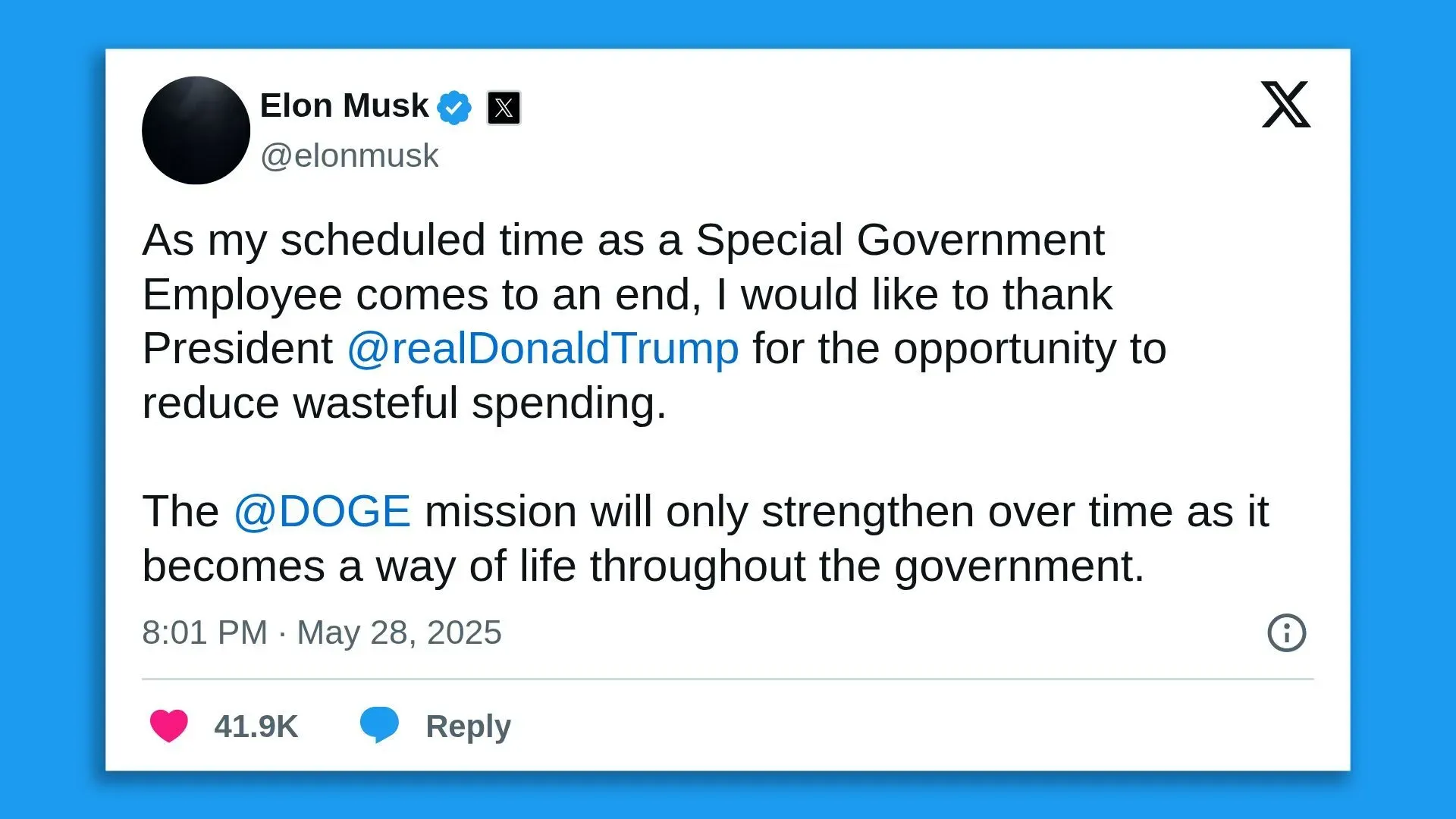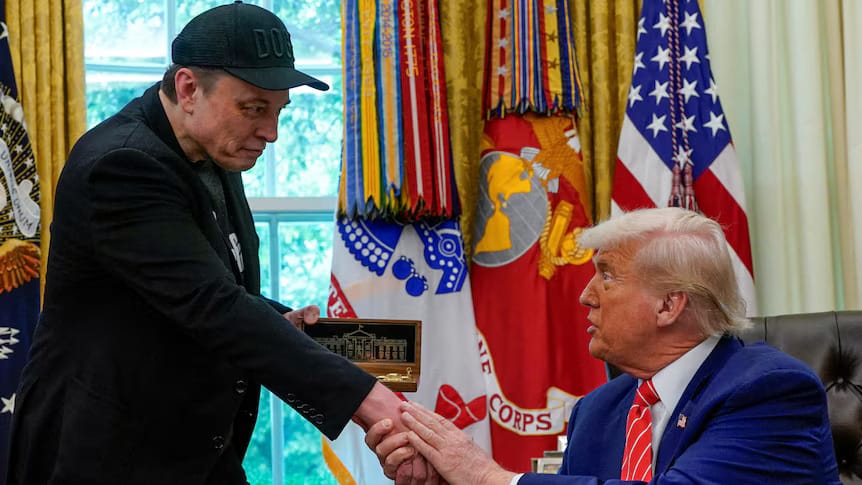Tech Billionaire vs. Ex-President: What Elon Musk’s Attack on Trump Reveals About 2025 Politics
Explore how Elon Musk’s explosive Epstein-file attack on Trump highlights the growing schism between tech elites and populist conservatives, and what it means for 2025 politics.

WASHINGTON, D.C., July 9, 2025
Elon Musk’s shocking statement on X about Donald Trump being “in the Epstein files” stunned the nation and sparked a larger battle between two influential groups: the tech elite and populist conservatives. This clash goes beyond personal differences. Musk’s actions signal major changes in the political and media landscape of 2025.
Culture War 2.0: Tech Elites vs. Populist Conservatives
Musk and Trump were once united against "woke" culture and championing "free speech." Musk supported Trump with nearly $290 million and took a senior advisory role in Trump’s DOGE agency. Now, Musk has positioned himself as a self-proclaimed judge of “truth,” while Trump has embraced clear populism through Truth Social. Their conflict reflects a broader division: tech libertarians versus nationalist populism.
Musk now promotes AI, Bitcoin, interplanetary colonization, and a new “America Party.” He criticizes what he sees as Trump’s careless spending and lack of transparency. The pressing question is whether this represents a real ideological shift or is just political maneuvering ahead of the 2026–28 elections.

Epstein Files: Allegations, Ambiguity, Amplification
In June, court-ordered disclosures from the Southern District of New York partially revealed the Epstein files, naming many individuals, some well-known and others obscure. Musk took advantage of this uncertainty, tweeting that Trump’s name is “in the Epstein files.” He framed the DOJ’s continued secrecy as a political shield, a claim he later deleted without fully retracting.
What’s Actually in the Epstein Files?
Flight logs and visitor records show Trump’s name, but this evidence does not imply any criminal intent.
Unverified witness accounts: Jane Does, allege names of VIPs, but many identities remain redacted.
Despite the lack of clear evidence, the allegations—amplified by Musk’s large following of 160 million—illustrate how suggesting guilt can create political pressure.
Weaponizing X: Narrative Control in the Digital Age
Musk has turned X from a platform for memes into a powerful political tool. Under his leadership:
- Moderation staff were reduced, allowing far-right voices back onto the platform.
- “Community Notes” shifted toward ideological bias instead of sticking to factual reporting.
- In June, 14 out of the 20 top political trends came from content Musk endorsed or promoted.
- Former Trump aides were banned for “platform manipulation” after they criticized Musk’s posts about Epstein.
Is Musk truly a defender of free speech, or is he a digital ruler shaping election stories?

Right-Wing Realignment: Fracturing Alliances
Musk, Trump, Rogan, and Thiel were once anti-establishment allies. Now:
Peter Thiel is supporting Nikki Haley’s third-party campaign.
Joe Rogan has distanced himself from Musk following the Ukraine-drone leak.
Steve Bannon, a Trump ally, is now linked by Musk to Epstein.
Susie Wiles, Trump’s Chief of Staff, describes this split as “very troubling,” a “hiccup” not to be overlooked.
Musk’s new “America Party” poses a threat to the GOP’s structure, particularly with plans to challenge incumbents aligned with Trump’s so-called “Big, Beautiful Bill.”
Legal or Smear? Defamation Lines in Digital Ink
Under U.S. First Amendment law, public figures must prove “actual malice” to win defamation cases—meaning they need to show known falsehoods or a reckless disregard for the truth. Musk’s claims are vague, relying on suggestions rather than proof. Still, Trump’s team has issued cease-and-desist orders, and the viral nature of Musk’s claims suggests damage to Trump’s reputation. First Amendment lawyer Floyd Abrams warns this approach risks crossing into defamation, even with Musk’s disclaimers.

Disruption as Strategy: Chaos as Currency
Musk’s actions—from cutting federal budgets through DOGE to starting a splinter political party—indicate a larger strategy: attacking established institutions to gain influence. He is employing political disruption in a way that mirrors previous tech-driven business changes. However, in this case, the goal is power, not profit.
Tesla investors are worried. A recent political pivot by Musk led to a 7% drop in stock value. Yet, Musk seems focused on creating a new political environment, reshaping traditional media and digital platforms to amplify his voice.
Transparently Moral—or Strategically Weaponized?
Is Musk’s campaign a genuine call for accountability or a strategic smear? It contains elements of both:
- He criticized reckless financial decisions.
- He portrayed Trump as an obstructionist.
- He positioned himself as a standard for accountability, advocating for the full release of the Epstein files through America Party initiatives.
However, it is clear that this tactic also weakens pro-Trump forces and boosts Musk’s role as a political gatekeeper.
The Battle for Narrative Domination
What started as a personal dispute has turned into a proxy battle over digital influence, media credibility, and political power. In the upcoming 2025–26 election cycle, who defines the truth, who amplifies it, and who controls it will shape America’s political transition.
Musk, once a minor player, has become a major force in shaping technology-driven politics. Trump, once an outsider, keeps his loyal base but now faces new threats to his media power.

Ledger of Loyalties, Lies, and Lines Crossed
Both leaders claim moral authority: Musk as a seeker of truth and Trump as a voice of the people. Yet in today’s digital world, truth has become transactional, exchanged for influence and appearance.
Question for Readers
Is Elon Musk’s public fight a true quest for transparency and justice, or is it just a powerful individual using digital insinuations as a political weapon ahead of the next major election?
Sources
Content and quotes sourced from BBC, CNN, NPR, Axios, Politico, Al Jazeera, Stanford Internet Observatory, The Washington Post, CNBC, and official Epstein court filings. Images retrieved from verified news archives of BBC, CNN, NPR, Axios, and Politico.




